By Daisy Nandeche Okoti
Published February 17, 2016
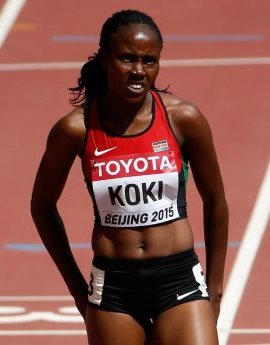 Call it Nationalism, Patriotism or National Pride. Kenya appeared to be drunk with it. Its athletes were outdoing themselves. And the world stood still. Curious. Savouring the moment. This was in August 2015. Kenya had harvested its largest haul of medals. And the 15th IAAF World Athletics Championships in the Chinese capital, Beijing, was considered Kenya’s best ever. The East African country of 43 million people stood at the top of the medal table. Coveting rivals–USA (3rd), Britain (4th), Canada and Germany (7th) and Russia (9th)–watched from a distance.
Call it Nationalism, Patriotism or National Pride. Kenya appeared to be drunk with it. Its athletes were outdoing themselves. And the world stood still. Curious. Savouring the moment. This was in August 2015. Kenya had harvested its largest haul of medals. And the 15th IAAF World Athletics Championships in the Chinese capital, Beijing, was considered Kenya’s best ever. The East African country of 43 million people stood at the top of the medal table. Coveting rivals–USA (3rd), Britain (4th), Canada and Germany (7th) and Russia (9th)–watched from a distance.
Kenya’s athletes had collected seven Gold, six Silver and three Bronze medals to sit at the top of the table. In second, fifth and 10th positions were Jamaica, Ethiopia and Cuba. And the celebration in Kenya, which is considered a world athletics power house in the middle and long distance running, hit a crescendo.
However, the celebration was short-lived as allegations emerged that Kenyan athletes were using banned performance-enhancement substances. Several athletes failed the doping test. And the celebration got muted; had Kenya really won in China? Had Kenya’s highest number of medals (16) been won legitimately?
The questions gave way to investigation. It is still goping on.
RELATED:Sport Unites Kenya
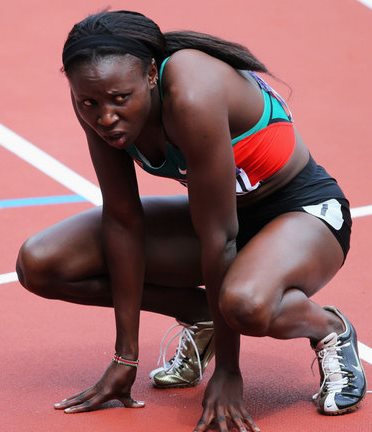 More than 40 athletes are currently facing a ban from the sport while four senior, and long-serving, officials of Athletics Kenya (AK) are on suspension pending investigation.
More than 40 athletes are currently facing a ban from the sport while four senior, and long-serving, officials of Athletics Kenya (AK) are on suspension pending investigation.
Isaiah Kiplagat (President), David Okeyo (Vice-President), and Joseph Kinyua (Treasurer) were suspended from office in 2015 following reports that they had misappropriated US$700000 from AK’s main sponsor, Nike. They were also accused of blocking anti-doping efforts.
AK was also accused of not complying with the regulations of the World Anti-Doping Agency (WADA) in eliminating alleged doping from the athletes under its jurisdiction; it had failed to formalise Kenya Anti-Doping Agency (Adak).
Isaac Mwangi, who heads AK, has in February 2016 stepped aside for investigation after he was accused by Joy Sakari and Franscisca Koki Manunga, two athletes on suspension, of having demanded bribes from them in order to shorten their period of suspension from athletics.
RELATED: Why Eastern Africa is Africa’s Dwarf in Football
AK, like Russia’s athletics management body, is being accused of aiding its athletes in cheating. International Association of Athletics Federations (IAAF), in November 2015, suspended Russia from participating in any international athletics competition following claims of state-sponsored doping in athletics. IAAF said there had been systemic doping and cover ups on the part of the Russian government. Consequently, IAAF slapped the country with a ban in what IAAF President, Sebastian Coe, called, ‘A wake up call to all of us.’
While suspending the All-Russia Athletic Federation (ARAF) as an IAAF Member, Coe, a former middle distance runner for Britain, said, “This has been a shameful wake up call and we are clear that cheating at any level will not be tolerated. To this end, the IAAF, WADA, the member federations and athletes need to look closely at ourselves, our cultures and our processes to identify where failures exist and be tough in our determination to fix them and rebuild trust in our sport. There can be no more important focus for our sport.”
But has AK woken up?
RELATED:Animal Rights Activists and Profiteers Set on Killing Kenya’s Bull-Fighting Sport
Although AK has distanced itself from the allegations of corruption haunting it, the world is comparing Kenya’s doping situation with that of Russia. That Kenya missed a February 2016 deadline to prove to WADA that it was combating doping, corruption and political patronage that are adversely affecting the independent functioning of the AK makes the situation much more precarious. Kenya is currently on a two-month probation during which time it must formalise Adak.
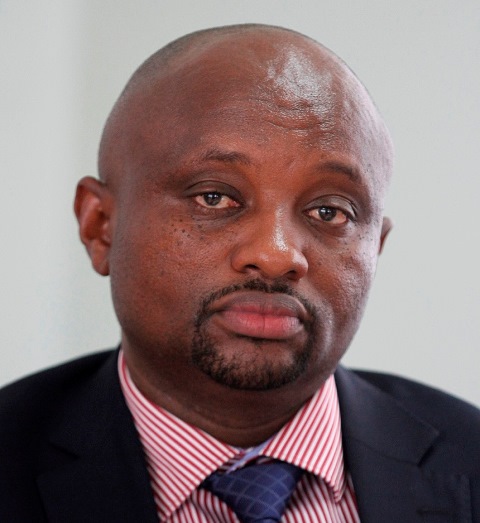 The Ethics Commission of IAAF is said to be currently investigating the claims of impropriety, with all indications pointing to non-compliance which could see Kenya face similar sanctions as Russia.
The Ethics Commission of IAAF is said to be currently investigating the claims of impropriety, with all indications pointing to non-compliance which could see Kenya face similar sanctions as Russia.
On its part, WADA says that it is extremely troubled by the reports of corruption and bribery against the CEO of AK which, it says, mirrors a report it received earlier by an independent commission that was investigating possible doping in global athletics. The question now is whether, given the depth of the dent in the country’s athletics scene, the glorious image of Kenya as an athletics giant will ever be recovered; but more importantly, was Kenya ever the giant?
Edna Kiplagat, a long distance runner, told ITV News that the doping allegations are bound to stain the country’s image in a way that it may never recover from. She argued that one of the reasons why the country hasn’t put a finger on the ghost of doping is the failure on the part of the government of Kenya and the National Anti-Doping Organisation to deliver on the promises they have made in the past on cleaning up the sport.
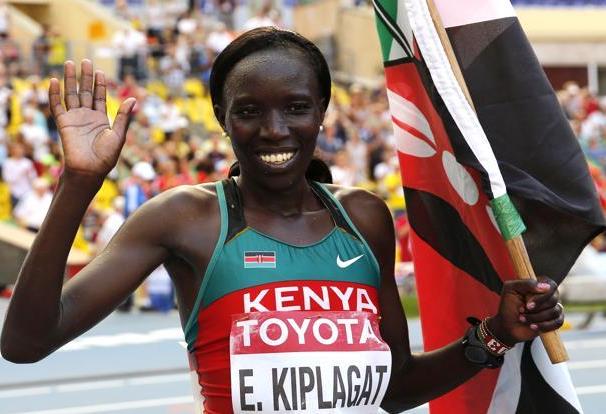 Moses Kiptanui, a three-time IAAF champion, concurs. He says he no longer has faith in the running of athletics in the country and this is attributed to the scandal after scandal that seems to rock AK: from corruption on the part of officials to the now mega doping scandal that is facing the country.
Moses Kiptanui, a three-time IAAF champion, concurs. He says he no longer has faith in the running of athletics in the country and this is attributed to the scandal after scandal that seems to rock AK: from corruption on the part of officials to the now mega doping scandal that is facing the country.
“Doping can spoil all the clean athletes, all of the sport’s image and all of Kenya’s primacy in the event,” Asbel Kiprop, an Olympic Gold Medalist, tells ITV News.
Kiprop says he is deeply ashamed that the sport he is part of is undergoing such turbulence.
RELATED:South Africa, a Hot Spot for Shark Diving
There is little doubt that these allegations of doping have cast a shadow of doubt on the genuineness of all the trophies Kenya has brought home in the past.
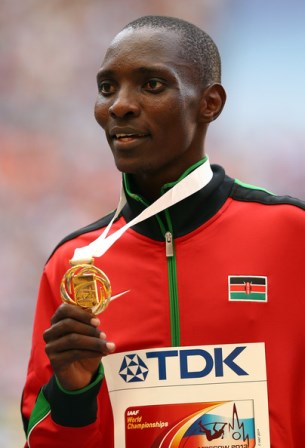 The seeming inability for the National Anti-Doping Organization to curb doping in the sport looks like a reflection of the lawless society Kenya is sliding into with laws no longer working and corruption remaining one of the most deeply entrenched vice with whoever has money carrying the day–the end justifies the means–sort of approach to life.
The seeming inability for the National Anti-Doping Organization to curb doping in the sport looks like a reflection of the lawless society Kenya is sliding into with laws no longer working and corruption remaining one of the most deeply entrenched vice with whoever has money carrying the day–the end justifies the means–sort of approach to life.
So, what implications would banning Kenya from athletics have?
To begin with, a ban for Kenya’s athletes would be a major blow on the economic wellbeing of the athletes, their families and the country.
RELATED:African Sports Films Tour Scotland Ahead of the Glasgow 2014 Commonwealth Games
The pride of the nation will also go down the drain because apart from athletics, there is really nothing major that puts Kenya on the world map.
The ban would confirm that Kenya is a deceitful country whose past glory in athletics was powered by cheating, deceit; Kenya would be judged harshly: that its athletes had always been on banned performance enhancing substances only that the world hadn’t been in the know. It hadn’t subjected them to doping tests as it should have.





